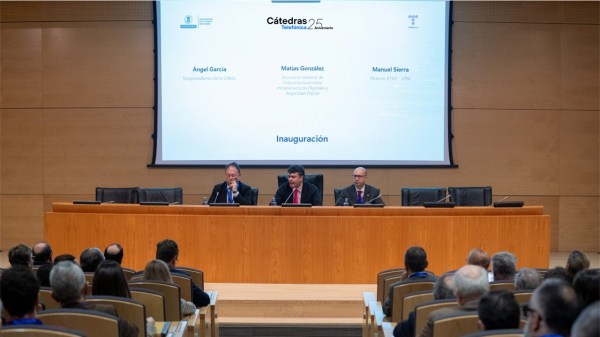From 13 to 17 October, Spain Digital Week was held in Brussels, organised by Adigital and sponsored by Telefónica. Among several meetings and debates, it is worth highlighting the one held on Tuesday, 14 October, called ‘Spanish Council on European Digitalisation,’ which took place at the Permanent Representation of Spain to the EU.
The event opened with Oriol Escalas, Deputy Ambassador of the Permanent Representation of Spain to the EU, and Nadia Calviño, President of the European Investment Bank (EIB).
Speakers at the Council highlighted the strategic role of Spain’s public and private sectors in advancing the European digital agenda, exemplified by the coordination achieved during Spain’s Presidency of the Council of the EU.
The event announced the launch of the TechEU platform, which will mobilise €250 billion by 2027 to support the entire business lifecycle and value chain. It also previewed the second phase of the European Tech Champions initiative.
Panellists stressed that Spain plays a key role in positioning Europe as a technological power. Rapid technological change demands major investment in innovation and infrastructure, and businesses do not always have the tools to mobilise private investment and scale. Hence the importance of creating such instruments so ideas can scale, companies can take risks and innovate, and potential can be realised.
Public–private collaboration to compete globally
The debate centred on the need for a united Europe, with flexible regulation and robust public–private collaboration to compete globally. Spain was presented as a strategic bridge and as a leader in digital health, cybersecurity and artificial intelligence.
Another key theme was the need to help start-ups and SMEs grow into European leaders through tax incentives, cross-border finance and simplified processes. Participants also highlighted the importance of simplifying regulation and promoting a more agile and efficient digital single market.
Digital trade agreements: a priority for the EU
International trade also featured prominently due to its digital component. In 2020, one in every four euros of global trade originated in digital transactions. This growth drives the need for European trade policy to adapt to the new environment. Trade should open markets and ensure European operators compete on a level playing field. In the data era, rules matter more than tariffs today and the main constraints are regulation, regulatory fragmentation and restrictions on digital flows, not customs duties.
The EU must engage more in digital services trade negotiations. These talks not only define interoperability and privacy standards, but they also determine how data, software and AI will flow in the decades ahead. This demands close monitoring and active participation when tensions or barriers arise.
The three Ps of Spain’s digital strategy: Presence, Positioning and Priorities
Tools such as the Digital Markets Act (DMA) seek to correct power imbalances in online markets. However, Europe should prioritise international agreements aligned with its standards rather than relying systematically on fines. European rules will only have global impact if projected through cooperation and openness.
Participants agreed that Spain must strengthen its presence in Brussels, communicate its capabilities more effectively and foster a culture of innovation and collaboration to scale technological projects globally.
The meeting concluded with a call to action based on the “three Ps” guiding Spain’s digital strategy:
- Presence: to reinforce Spain’s image and leadership.
- Positioning and processes: to increase influence in EU policymaking.
- Policy priorities: to define the strategic sectors where Spain seeks to lead.
This event reaffirmed Spain’s commitment to Europe’s digital transformation and its key role in building a more competitive and inclusive technological future. The next step is the right regulatory framework to achieve these common objectives.











